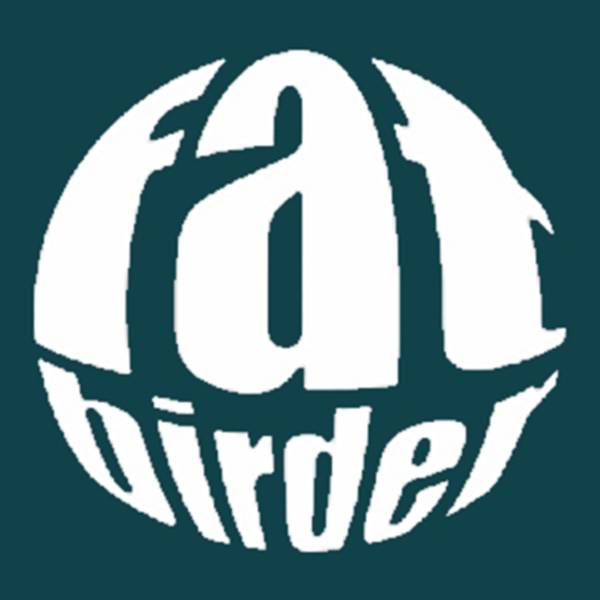United Kingdom of Great Britain & Northern Ireland & Crown Dependencies
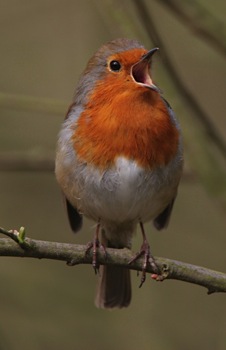
Birding Britain
The UK & NI and Crown Dependencies are a diverse group of Islands with, as we are very fond of telling everyone, weather, rather than a climate. Our distinct seasons (Summer is the one when the rain gets warmer) punctuate our birding, splitting it into good months for migrants going north, months for breeding summer visitors, months for birds migrating south and months for winter visitors. There are few months when vagrants are scarce, and, with the plethora of pagers, telephone lines and mailing lists it is a haven for twitchers who want to build long year lists or even longer life lists. The Total number of species that have been seen in the UK (excluding obvious escapees) is in the region of 550. Anything over 400 is reckoned to be a good total and there is a club called the UK400 club for such aficionados of the sport of twitching.
The UK is also a land of birders, dudes, ringers, ornithologists and the like. There is plenty of room for all. The Royal Society for the Protection of Birds has over one million members and is the biggest membership environment organisation in Europe. It is also estimated that, of the 60 million or so Brits, 20 million regularly feed the birds in their back gardens, yards, or even high rise balconies. Despite this birdwatchers tend to be called twitchers in the press and popular parlance and are still seen as rather sad anorak types on a par with train-spotters. Yet, if you set up your scope away from a reserve, ordinary locals will often come up to see what you are looking at and, if invited, will take a peak and enjoy the experience, especially if you tell them that they are seeing something rare or unusual.
Unfortunately more and more birds in the UK are rare or unusual, not because of sudden influxes borne by unseasonable winds but because the once commonplace is getting rarer all the time. Why? You may well ask and a debate rages. It may be that we have long had a very intensive farming culture that was among the first to mechanise and use chemical herbicides, pesticides and fertilisers upsetting local ecological balances. It may be the fact that such agri-business is all about yields and has little concept of balance. Much land has been put to the plough that would be better left to the wild things. Bogs were drained, hillsides ploughed up and scrub cleared 70 years ago in an attempt to make us self sufficient, 20 years ago subsidies were attracted by eco-unfriendly methods. This is beginning to reverse but it is too late for many individual birds and even a few species that still thrive where agriculture is in harmony with the land.
This is, as everyone knows, a small crowded Island but there are still lots of open spaces and more sensitive agriculture, road, house and industry building, mineral extraction, and forestry could go a long way to giving us back the richness of flora and fauna we undoubtedly crave.
But even this is not the whole picture. Recent declines in species that have long been associated with humanity and at home in our cities is further cause for concern. Is it all about petrol additives? Is it more general pollution or is there just not enough natural food left for birds to find in competition with others.
Thankfully, we have some of the very best conservation organisations in the world and groups like the BTO are at the leading edge of research into how we could, if we are minded, reverse these trends. In the meantime many thousands of us cross the channel in search of birds that were once common this side of the tunnel 30 years ago.
Yet every weekend a few hundred thousand of us can be found watching our local reserve, tramping and recording on our patch or haring after scarcities. If, like the fatbirder, you are among these hoards remember just two things. Follow the country code (and the few rules about putting the interests of birds first) and join an organisation and add your voice to the pressure to care about the wild world. NGOs like the RSPB are intent now on doing things on a geographical scale knowing that small reserves might protect a few prominent species, but the health of bird populations relies on ameliorating bad land use practices on a wide scale. Together we can bring back the fens and levels,
deciduous forests and hanging woodlands, wildlife friendly farms and restore heathland and water meadows.

-
Number of bird species: 628
National Bird - Robin Erithacus rubecula
[In fact the UK does NOT have a national bird - but a poll of British birders voted for Robin]
Number of endemics: 1
Scottish Crossbill Loxia scotica
-
The British List
BTO ChecklistThe latest list includes all species - 628 as at 14 June 2022 - recorded in a wild, or apparently wild, state in Britain, as recognised by the British Ornithologists' Union (BOU).
-
**Collins Bird Guide
| (The Most Complete Guide to the Birds of Britain and Europe) | by Killian Mullarney, Lars Svensson, Dan Zetterstrom | Harper Collins | 2023 | Edition 3 | Paperback | 478 pages, 4000 colour illustrations, 700 colour distribution maps | ISBN: 9780008547462 Buy this book from NHBS.com -
*Britain's Birds
| An Identification Guide to the Birds of Great Britain and Ireland | By Rob Hume, Robert Still, Andy Swash, Hugh Harrop & David Tipling | WILDGuides | Edition 2 | 2020 | Flexibound | 576 pages, 3200+ colour photos, colour distribution maps | ISBN: 9780691199795 Buy this book from NHBS.com -
A Field Guide to the Birds of Britain and Ireland by Habitat
| By Mark Golley | New Holland Publishers | 2004 | Paperback | 208 pages, 1000 col illustrations | Out of Print | ISBN: 9781843305767 Buy this book from NHBS.com -
A Naturalist's Guide to the Birds of Britain and Northern Europe
| By Peter Goodfellow | John Beaufoy Books | 2019 | Edition 2 | Paperback | 160 pages, 300 colour photos | ISBN: 9781912081219 Buy this book from NHBS.com -
Bill Oddie's Birding Map of Britain and Ireland
| By Bill Oddie | New Holland Publishers | 2011 | Map | Scale: 1.7M, full col photos | Out of Print | ISBN: 9781847739810 Buy this book from NHBS.com -
Bird Atlas 2007-11: The Breeding and Wintering Birds of Britain and Ireland
| By Dawn Balmer, Simon Gillings, Brian Caffrey, Bob Swann, Iain Downie & Rob Fuller | British Trust for Ornithology | 2013 | Hardback | 720 pages, colour photos, colour distribution maps | ISBN: 9781908581280 Buy this book from NHBS.com -
Birds Britannica
| By Mark Cocker & Richard Mabey | Chatto & Windus | 2020 | Edition 2 | Hardback | 518 pages, 400 col illustrations | ISBN: 9781784743789 Buy this book from NHBS.com -
Birdwatchers Yearbrook
| Edited by Neil Gartshore | Calluna Books | Published every year | Paperback | 328 pages, b/w illustrations, two-tone maps | ISBN: 9780993347795 Buy this book from NHBS.com -
British Birds
| A Pocket Guide | By By Rob Hume, Robert Still, Andy Swash, Hugh Harrop & David Tipling | WILDGuides | 2019 | Flexibound | 272 pages, 1600 colour photos, 248 colour distribution maps | ISBN: 9780691181677 Buy this book from NHBS.com -
Collins BTO Guide to British Birds
| By Paul Sterry & Paul Stancliffe | William Collins | 2015 | Paperback | 320 pages, 1200+ colour photos, colour illustrations | ISBN: 9780007551521 Buy this book from NHBS.com -
Field Guide to the Birds of Britain and Ireland
| By Mark Golley |Illustrated by David Daly | Bloomsbury| 2016 | Paperback | 208 Pages | Colour Illustrations | Out of Print | ISBN: 9781472917461 Buy this book from NHBS.com -
Into the Red
| A Collection of Words and Art Inspired by Britain's Most Vulnerable Birds | Edited by Kit Jewitt & Mike Toms | 2022 | Hardback | 176 pages, colour photos, colour & b/w illustrations | ISBN: 9781912642380 Buy this book from NHBS.com -
Photographic Guide to the Birds of Britain and Europe
| By Hakan Delin & Lars Svensson | Bounty Books | 2004 | Paperback | 288 pages, 1300 col photos, 163 illus, 465 maps | Out of Print | ISBN: 9780753706893 Buy this book from NHBS.com -
RSPB British Birds of Prey
| By Marianne Taylor & Stig Frode Olsen | Helm | 2018 | Hardback | 224 pages | 200 colour photos | ISBN: 9781472965806 Buy this book from NHBS.com -
RSPB Handbook of British Birds
| By Peter Holden & Richard Gregory | Bloomsbury | 2021 | Edition 5 | Paperback | 320 pages, 1200+ colour illustrations, colour distribution maps | ISBN: 9781472980267 Buy this book from NHBS.com -
RSPB Nature Reserves
| Royal Society for the Protection of Birds (RSPB) | 2002| Paperback | 65 pages, colour photos, illustrations, maps | Out of Print | ISBN: 9781901930429 Buy this book from NHBS.com -
RSPB Pocket Guide to British Birds
| By Simon Harrap | Bloomsbury Publishing | 2018 | Edition 2 | Paperback | 224 Pages | 900 Colour Illustrations | 170 Colour Distribution Maps | Out of Print | ISBN: 9781472962621 Buy this book from NHBS.com -
Scarce Migrant Birds of Britain and Ireland
| By JTR Sharrock | T & AD Poyser Ltd (A & C Black) | 2010 | Hardback | 192 pages, b/w photos, b/w illustrations, b/w distribution maps, tables | ISBN: 9781408137383 Buy this book from NHBS.com -
The Crossley ID Guide: Britain & Ireland
| By Richard Crossley & Dominic Couzens | Princeton University Press | 2013 | Paperback | 301 pages, 310 plates with colour photos, 250 colour distribution maps | ISBN: 9780691151946 Buy this book from NHBS.com -
The Migration Atlas
| (Movements of the Birds of Britain & Ireland) | Edited by C Wernham, M Toms, J Marchant, J Clark, G Siriwardena & S Baillie | T & AD Poyser Ltd (A & C Black) | 2002 | Hardback | 884 pages, figs, tabs, dist maps | Out of Print | ISBN: 9780713665147 Buy this book from NHBS.com -
Tracks & Signs of the Birds of Britain and Europe
| By Roy Brown, John Ferguson, Michael F Lawrence & David C Lees | Bloomsbury Publishing | Edition3 | 2021 | Paperback | 416 pages, colour photos, colour & b/w illustrations | ISBN: 9781472973184 Buy this book from NHBS.com -
Where to Watch Birds in Britain
| By Simon Harrap & Nigel Redman | Christopher Helm | 2010 | Edition 2 | Paperback | 671 pages, Maps | ISBN: 9781408110591 Buy this book from NHBS.com -
Where to Watch Birds in Britain and Ireland
| By David Tipling | New Holland | 2006 | Paperback | 176 pages, 64 colour photos, 31 maps | Out of Print | ISBN: 9781845374594 Buy this book from NHBS.com
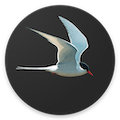
*Collins Bird Guide
Apple iOS | Android| (A field guide to Europe) | NatureGuides Ltd | 907.3 MB | iOS 9 Android OS 5 | English, French, German, Norwegian Bokmål, Swedish | Full interactive experience with calls and song as well as text and illustrations from the best fieldguide ever. The Collins Bird Guide app is now available to for eith IOS or Android devices
Bird Id – British Birds
Apple iOS || British Isles Identification Guide including all RSPB BGB bird watching survey birds | Mullen & Pohland GbR | 142.7 MB | Requires iOS 6.0 or later |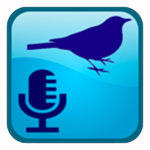
BirdUp
Apple iOS | Android| birdsong recognition | Jon Burn | 21 M | Requires Android 4.1 and up | BirdUp recognises all common birds found in gardens, parks and woodlands in the UK.
Birds of Britain
Apple iOS | Android| 79M | Requires Android 4.1 and up | Simple and easy to use list of all the birds you can see in Great Britain. Also shows what birds are likely to be in your area at the moment. Now also includes songs for most common birds.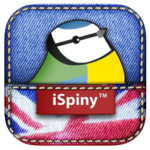
Birds of Britain Pocket Guide
Apple iOS || A handy guide to British birds | Spiny Software Ltd | 168.8 MB | Requires iOS 8.0 or later | Our apps are British-made, by British naturalists - we know our stuff! Fantastic photos, songs, calls, distribution maps and detailed information for over 200 birds - all the common and best known birds in Britain arranged by family or alphabetically. The specially written bird notes cover the appearance, habitat, diet, lifespan, nesting habits, rarity status, and distribution in Britain, as well as interesting facts.
Birds of Britain Pro
Apple iOS | Android| A Field Guide from iSpiny | Spiny Software Ltd | 247.5 MB | Requires iOS 8.0 or later | Birds Of Britain Pro is a guide to over 300 British birds, native and naturalised, with specially written text, professionally produced bird songs and calls, and carefully selected photos showing a variety of plumages. You can add your own photos to the app to compliment the images provided and to really make the app your own.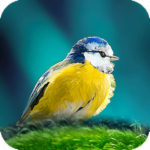
Birds of Britain and Europe
Apple iOS | Android| Pierre-Olivier Templier | Antiopa | 91MB | Requires Android 4.1 and up | 132.9 MB | Requires iOS 6.0 or later | 337 birds of Europe. More than 1000 pictures. 324 sounds.
RSPB eGuide to British Birds
Apple iOS | Android| mydigitalearth.com | Requires Android 2.1 and up | 269.8 MB | Requires iOS 8.4 or later | Paintings; 290+ species - The eGuide to British Birds is an interactive companion to The RSPB Handbook of British Birds – the ideal reference for birdwatchers of all levels of interest and experience. This application has specific features that will enhance your birding experience.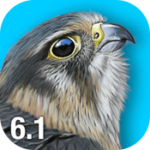
iBird UK Pro Guide to Birds
Apple iOS || iBird Guide to Birds of the UK | Mitch Waite Group | 1.1 GB | Requires iOS 9.0 or later | iBird United Kingdom and Ireland Pro, the world’s most popular identification app to birds of the UK, is now available as Version 10.06. iBird UK Pro now offers two powerful features: Birds Around Me (BAM) and Percevia™ smart search. Smart search lets you identify birds just like the experts while BAM only shows species that are found in your GPS area. We’ve also added our new Time of Day search feature which lets you filter birds by activity intervals during day or night (Cathemeral), dawn and dusk (Crepuscular), during the day (Diurnal) or during the night (Nocturnal).Useful Information-
BTO Bird Facts
InformationBirdFacts provides key information about the UK’s birds and their changing fortunes, based on data collected by BTO and partner organisations. -
British-birdsongs.uk
Information & AppA handy on-line resource -
Quicktide
WebsiteSee the website - the quick way to determine tide times for bird watchers. On sale at various RSPB and WWT centres and through the web site -
The Birdwatchers Yearbook
Recommending ReadingAll county recorder and club information on Fatbirder is either derived directly from county clubs and correspondence or from the Yearbook. This is an invaluable source of information and should be on every UK birder's bookshelf. It is published by Buckingham Press, 55 Thorpe Park Road, Longthorpe, Peterborough PE3 6LJ. buck.press@btinternet.com -
Vice Counties - Recording Areas
InformationVice-county boundaries were originally defined by H.C. Watson in 1852. For more information see Wikipedia. -
Wildlife Watching Calendar Scotland
InformationA seasonal guide to the wildlife highlights around Scotland
Festivals & Bird Fairs-
Global Bird Fair
WebsiteJoin a community of nature lovers and birdwatchers from around the world as we gather to make a difference to Conserving Nature Worldwide. Global Birdfair will take place at Rutland Showground, Oakham, Rutland UK. LE15 7TW
Observatories-
The Bird Observatories Council
Facebook PageSatellite ViewThe Bird Observatories of Britain and Ireland - The Bird Observatories Council co-ordinates and promotes the work of the bird observatories at a national level. Individual observatories are accredited to the Council when they meet specified criteria relating to activities and facilities. Click here to see what is required for this.
Museums & Universities-
Natural History Museum
MuseumThe Museum's avian skin collection is the second largest of its kind in the world, with almost 750,000 specimens representing about 95 per cent of the world's bird species. The bird skin collection contains the largest number of bird type specimens in the world, at over 8,000.
Organisations-
Army Ornithological Society
WebsiteWelcome to the Army Ornithological Society's website. Within these pages you will get an idea of the sort of birding that we do, the diverse activities which we enjoy, and the contribution that the Army Ornithological Society makes to conservation at home and abroad. From Aldershot to Afghanistan and a few places en route, this website will give you a taste of Army Birding. -
BFA Birding For All (was Disabled Birders Association)
WebsiteThe Disabled Birders Association was founded on 1st April 2000 - an auspicious date, but one that should not be taken to mean that our purpose is in anyway frivolous. The DBA is an international movement to promote access to reserves and other birding places and to a range of services so that people with special needs can follow the birding obsession as freely as able-bodied people. In 2010 we changed our name to 'Birding For All' to emphasise the inclusive nature of the charity. -
BOC British Ornithologists Club
WebsiteThe BOC’s objects are to advance education in the subject of ornithology for the benefit of the public by promoting scientific discussion between members and others interested in ornithology and to facilitate the dissemination of scientific information concerned with ornithology, and in particular avian systematics, taxonomy and distribution. -
BOU British Ornithologists Union
WebsiteFounded in 1858, the BOU is one of the world’s oldest and most respected ornithological organisations with an international membership stretching across all continents. By joining and supporting us you are supporting the wider global ornithological community. -
BRRC British Birds Rarities Committee
WebsiteThe BBRC is the official adjudicator of rare bird records in Britain. Its members are democratically elected by birders’ representatives in each county and serve for a fixed term. It publishes its annual report in the monthly journal British Birds. These web pages supplement the Annual Report and also enable birders worldwide to keep abreast with the latest committee news. -
BTO British Trust for Ornithology
WebsiteLooking out for birds? Share your interest in birds with others by being part of the British Trust for Ornithology (BTO). Volunteer surveyors, members and staff work in partnership to provide unbiased information about birds and their habitats. Join or volunteer today and make birds count. -
BUBO Listing
WebsiteBUBO Listing is a new approach to an old activity; comparing birding lists. Whilst frowned upon by the more serious-minded, bird listing is as vibrant, active and exciting as ever. Put two birders in a room together and before too long they'll know if the other saw the 2006 Long-billed Murrelet in Devon! There have been a number of attempts to enable comparison of lists on the internet, some local and others at the national level or wider. Whilst all have positive sides, they all have disadvantages too. BUBO Listing is an attempt to provide a free, flexible and widely used site for the comparison of birding lists. The more people that use BUBO Listing, the better it will become for all users. Anyone can view all lists without logging in but if you wish to enter your own lists you need to register an account. -
Barn Owl Centre
WebsiteEstablished in 1997, registered as a charity 2003, The Barn Owl Centre is an organisation dedicated to Education, Wildlife Conservation & Bird Welfare -
Barn Owl Trust
WebsiteBased in Devon the Barn Owl Trust is Britain's leading Barn Owl conservation charity; working hard to conserve the Barn Owl and its environment - and as a consequence, all sorts of other species and their habitats, too. -
Bird Track
WebpageBirdTrack is an exciting project, through a partnership between the BTO, the RSPB, Birdwatch Ireland, the Scottish Ornithologists' Club and the Welsh Ornithological Society, that looks at migration movements and distributions of birds throughout Britain and Ireland. BirdTrack provides facilities for observers to store and manage their own personal records as well as using these to support species conservation at local, regional, national and international scales. -
Canal & Rivers Trust
WebsiteOur task is to promote the widest possible public awareness and enjoyment of the UK waterways. We will work in partnership with individuals, communities and organisations, to conserve, restore, improve and interpret all aspects of waterways. Through our work we will realise sustainable benefits for all sectors of the community in terms of recreation, education, conservation, as well as social and economic welfare… -
Edward Grey Institute of Field Ornithology
WebsiteThe Edward Grey Institute is part of the Department of Zoology at the University of Oxford. Founded in 1937, it conducts research into the behaviour, ecology, evolution and conservation of birds, with a strong emphasis on understanding organisms in their natural environments. Read more on the history of the EGI. -
Flock Together
WebsiteFlock Together is a birdwatching collective for people of colour. Nature is a universal resource. For too long black, brown and POC have felt unwelcome and marginalised in spaces that should be for everyone. Together we are reclaiming green spaces and rebuilding our relationship with nature - one walk at a time. -
Game & Wildlife Conservation Trust
WebsiteWe are a leading UK charity conducting conservation science to enhance the British countryside for public benefit. For over 80 years we have been researching and developing game and wildlife management techniques. We use our research to provide training and advice on how best to improve the biodiversity of the countryside. -
Gay Birders' Club
WebsiteIf you are gay, lesbian, bisexual or transgender and you enjoy birdwatching, why not find out more about the Gay Birders’ Club by exploring our web site. The Gay Birders’ Club has been organising events and providing facilities for the LGBT community since 1994. We are based in the United Kingdom but have contacts throughout the world. -
Great Bustard Group
WebsiteThe Great Bustard Otis tarda is one of the heaviest flying birds alive today and can be found across Europe, as far south as Spain and as far north as the Russian steppes. The conservation status of the Great Bustard is listed as vulnerable, there with populations in many countries being in decline. The species became extinct in the UK in 1832. -
JNCC Joint Nature Conservation Committee
WebsitePlacing nature at the heart of sustainability and well-being -
LIPU UK
WebsiteLIPU-UK was founded in 1989 and since then has been successful in supporting LIPU, the Italian League for Bird Protection, the BirdLife Partner in Italy, in many ways. LIPU-UK members have been to Italy to help on the ground with various projects and members and friends have together raised money totalling over £1,300,000 which has been committed to conservation work in support of the birds in Italy. -
LPO (UK Branch)
WebsiteA great site, in English, about the Ligue Pour la Protection des Oisseaux - The French RSPB. -
National Birds of Prey Centre
WebsiteThe National Centre for Birds of Prey (NCBP) is a new visitor attraction situated at the magnificent Duncombe Park estate (click here for a map of the parkland walks) in Helmsley. Set within the world famous North York Moors National Park. -
National Wildlife Crime Unit
WebsiteThe main role of the UK National Wildlife Crime Unit (NWCU) is to assist in the prevention and detection of wildlife crime. We do this by obtaining and disseminating information from a wide range of organisations and by assisting police forces in wildlife crime investigation. We produce analysis which highlights local or national threats. We are also the conduit between police forces and PAW partners. -
Operation Turtle Dove
WebsiteTurtle doves (Streptopelia turtur) are in trouble; they are vulnerable to global extinction (IUCN Red List of Endangered Species). They have suffered a 91% UK population decline since 1995 and a 78% decline across Europe since 1980. At this current rate of change if we don’t help this species scientists calculate that complete UK extinction as a breeding species will be a real possibility. Operation Turtle Dove has an important and urgent mission to reverse the fortunes of this enigmatic and culturally significant bird. Please help us to save them. -
RSPB Royal Society for the Protection of Birds
WebsiteNature is in big trouble, but we've got big plans to save it. From now until 2030, we'll be focusing on some ambitious plans and targets - working together with you and our partners to collectively change the fate of nature. -
Raptor Rescue
WebsiteRaptor Rescue was founded in 1978 by a group of falconers in the North West of England concerned that there was no recognised specialist organisation able to treat the large number of sick or injured Birds of Prey that came into care. Since inauguration, Raptor Rescue has evolved into the UK’s foremost organisation dedicated to ensuring all sick and injured Birds of Prey are cared for by suitably qualified people and wherever possible released back into the wild. In the intervening years Raptor Rescue has moved from being a group of concerned individuals to become a Registered Charity, number 283733, with a board of Trustees responsible for control and management. -
Rare Breeding Birds Panel
WebsiteSecretary. Dr. Malcolm Ogilvie, Glencairn, Bruichladdich, Islay, PA49 7UN, 01496 850218 rbbp@indaal.demon.co.uk The Rare Breeding Birds Panel was formed in 1972 by representatives of RSPB, British Birds, the British Trust for Ornithology and The Nature Conservancy Council. The present Panel is made up of representatives of the first three organisations plus the Joint Nature Conservation Committee. The Panel`s prime function is to act as a secure depository of sensitive information on the breeding of rare birds in Britain. -
Royal Air Force Ornithological Society
Facebook PageThe Royal Air Force Ornithological Society (RAFOS) exists to bring together bird-watchers of all levels of skill who are connected in some way with the RAF. Its field meetings and 'expeditions' in the UK and abroad provide an ideal opportunity to learn more about birds, as well as doing so in a relaxed and friendly atmosphere. New members are welcome! -
Royal Navy Birdwatching Society
WebsiteThe Royal Naval Birdwatching Society is open for membership to all serving or Ex RN/RM personnel. It is also open to all, regardless of nationality, who share a common interest in birds at sea. We especially encourage Seafarers and Mariners at all levels, from the crew of the biggest cruise liner to the owner of the smallest dinghy. If you love seabirds or seeing landbirds at sea then the RNBWS may be for you. -
Scottish Ornithologists Club
WebsiteThe Scottish Ornithologists' Club (SOC) was established by a group of Scottish ornithologists who met together in the rooms of the Royal Scottish Geographical Society in Edinburgh on 24th March 1936. SOC exists to promote the study, enjoyment and conservation of wild birds and their habitats across Scotland. On the face of it, the SOC is a birdwatching club with 15 local branches across the country and a growing membership of over 3000. We bring together like-minded individuals with a passion for birds, nature and conservation, through a programme of talks, outings, conferences and via the Club's quarterly members' journal, Scottish Birds. We are heavily dependent on keen volunteers and the support of our membership. -
Swift Conservation
WebsiteSwifts are with us for just three months each Summer, bringing spectacular action, drama and excitement to our urban skies. These amazing birds have shared our buildings ever since the Romans came to Britain. They still breed in our eaves and gables, but not for much longer, as modern and renovated buildings exclude them - we have lost half of our Swifts in just the past 20 years. Unless we help them, Swifts will vanish from the UK. Find out here all about Swifts, why they matter, and how you can help them thrive -
UK250 Club
WebpageThe UK 250 Club is a club for people who have found at least 250 bird species in Great Britain and Ireland (GB & I). The Club aims to promote the skill of finding birds in the UK. It is intended as a fun and different way of looking at lists, and must not be seen as excessively competitive. UK 250 Club supports nature conservation by promoting the submission of bird records to local bird recorders. -
WWT Wildfowl & Wetlands Trust
WebsiteA whole new world of discovery awaits you at WWT Wetland Centres. There’s trails ablaze with wildlife, canoe safaris through quiet waterways, encounters with some of the world’s most endangered birds and adventure playgrounds for little explorers. Add to that, a packed line-up of events throughout the year, cafes serving delicious homemade goodies, and gift shops bursting with take-home treats. -
Young People's Trust for the Environment
WebsiteThe environment is a major issue among people who care about their future. Most people agree that younger generations are the key to a successful future in a rapidly expanding world. Technology has certainly helped people to become more self sufficient, but it has also caused pollution issues. This is why it needs to be the duty of every school to teach kids how to help the world that they live in.
Reserves-
* Reserves Abbreviations
Observatory WebsiteSatellite ViewI list all the reserves on their appropriate county pages. Most will have a prefix as follows: BFT Borders Forest Trust BR Biosphere Reserve CP Country Park CW Community Woodland FC Forestry Commission FCS Forestry Commission Scotland LNR Local Nature Reserve NEWW North East Wales Wildlife NNR National Nature Reserve NRW Natural Resources Wales NT National Trust NTS National Trust Scotland RP Regional Park RSPB Royal Society for the Protection of BirdsSAC Special Are of Conservation SNH Scottish Natural Heritage SPA Special Protection Area SWT Scottish Wildlife Trust ?WT County Wildlife Trust (with '?' replaced by capital letter of county) WP Woodland Park WWT Wildfowl & Wetland Trust All others will be written in full -
RSPB
WebsiteSatellite ViewThe RSPB site has changed greatly over the last 12 months -
Wildfowl & Wetland Trust
WebsiteSatellite ViewWorking to save wetlands for wildlife and people is the slogan of the organisation and it is keeping Sir Peter Scott`s vision alive very well with lots of good information and images. -
Wildlife Trusts
WebsiteSatellite ViewWildlife Trusts on the internet. Since 1912 The Wildlife Trusts have been speaking out for nature in Britain. Their unique organisation is a network of 46 Wildlife Trusts, 50 Urban Wildlife Groups and Wildlife Watch (the junior branch). Together they cover every corner of the UK. -
Woodland Trust
WebsiteSatellite ViewFind your nearest woodland that is managed for conservation.
Sightings, News & Forums-
Bird Forum
ForumBirdForum is the net's largest birding community, dedicated to wild birds and birding, and is absolutely FREE! You are most welcome to register for an account, which allows you to take part in lively discussions in the forum, post your pictures in the gallery and more.trip reports, a very active mailing forum, instant messaging and much more. Fatbirder recommended.
Trip Reports-
2022 [05 May] - Birding Ecotours
PDF ReportA total of 147 bird species were recorded during the tour and included superb species such as King Eider, Velvet Scoter, Garganey, Black Grouse, Willow Ptarmigan (the British endemic subspecies known as Red Grouse), Eurasian Bittern, Eurasian Spoonbill, Glossy Ibis, Common Crane, Eurasian Dotterel, European Golden Plover, Bar-tailed Godwit, Blacktailed Godwit, Mediterranean Gull, Arctic Tern, tens of thousands of alcids (including Atlantic Puffin), Western Marsh Harrier, Red Kite, Common Cuckoo, Eurasian Hobby, Common Nightingale, Bearded Reedling, European Pied Flycatcher, White-throated Dipper, Common Firecrest, Dartford Warbler, and Wood Warbler. -
2023 [08 August] - Aseem Kothiala - England & Wales
ReportWe visited the United Kingdom in the mid of August (2023), starting from Surrey, which is a county in South East England and one of the home counties. It shares its borders with Kent to the east, East Sussex to the south. One among its many notable beauty spots is Box Hill. We drove to Box Hill, which has the oldest untouched area of natural woodland in the UK and one of the oldest in Europe. As it’s a part of the National Trust (Europe’s biggest conservation charity), we could park our vehicle at a well designated spot. Along the edge of the road, there was a well paved walkway that took us to the pathway. The pathway had many enthusiast who were either walking or running. The bird activity was low. (Well I will be using this term often, as at the back of the mind , we kept comparing with the activity we are used to seeing in the forests and other locations in India). -
2024 [05 May] - Chris Lotz
PDF Report...Three nights in Yorkshire were next on the agenda. Here, we enjoyed seeing White-throated Dippers, Willow Ptarmigan (Red Grouse) and the spectacular seabird colony at RSPB Bempton Cliffs (huge numbers of Northern Gannets and other seabirds breed on the impressive sea cliffs here). Our last bit of birding in England (before heading for the Scottish Highlands) was in Northumberland, where we enjoyed seeing some Black Grouse en route...
Places to Stay-
Bird and Dine
WebsiteA new site, www.birdanddine.com offers the unique opportunity to combine eating well and watching birds and other wildlife at the same time...
Other Links-
British Bird Lovers
WebsiteBritish Bird Lovers is dedicated to anyone who enjoys caring for and observing wild birds. Here you will be able to find information about garden birds and bird watching in the UK. You will also be able to find a great range of products to buy including garden accessories for birds, bird food, birdwatching equipment and gifts. If you want to observe birds in habitats further afield than we have information on bird watching holidays and other actvities. This site is primarily aimed at the amateur bird watcher or people who simply enjoy seeing birds in their gardens. However, if you wish to take your hobby further then have a look at the Useful Links page where you will find details of many organisations who can give you further advice. -
British Birds
WebsiteBritish Birds is a monthly, ornithological journal read by all serious birdwatchers and ornithologists around the World and fills a unique ornithological niche between the overtly scientific journals and the wholly popular birding press. Founded in 1907 -
British Facebook Birders
Facebook Page348 members of this group of birders - many of the high profile birders included -
British Garden Birds
WebsiteBritish Garden Birds shares information about the birds that visit a suburban garden in Sheffield, England. -
Lost & Found
WebsiteThe Independent Bird Register was set up in 1994 to reunite lost, found and stolen hawks, falcons and owls. The IBR issue breeders and split rings for all birds of prey. NOW 492 unclaimed raptors - 600+ Birds Reunited -
Patchwork Challenge
Twitter FeedIt's all about the patch now. Searching, finding, documenting, historical perspective, deeper understanding & being part of a time and place. The birding fraternity has seen a shift in attitudes recently, with many birders turning their attention from twitching towards rarity finding. As a result, there also seems to have been an upturn in the profile watching a local patch. The advantages of watching a local patch are obvious. Low fuel costs and travel time aside, great pleasure can be derived from getting to learn a place inside out, observing how the seasons change, and getting value from common species that otherwise wouldn’t get a second glance. Throw in the potential for the odd rare bird or scarcity and to me, you have a really exciting, involving way to enjoy your birding. -
Starlings In The UK
WebsiteWelcome to Starlings In The UK, a website to give you information regarding the Starling Murmurations that occur at the roost sites in the British Isles. -
Surfbirds
WebsiteWe're a group of birding friends from Britain and America who decided to team up on an international birding website. Bringing the best in birding from both sides of the Atlantic and further afield onto one website, we hope to have created something unique. -
The One & Only Bill Oddie
WebsiteBill Oddie is a birdwatcher, broadcaster, actor, television presenter, writer, song-writer, musician, conservationist and much more! -
Zoological Society of London (London Zoo)
Website
Photographers & Artists-
Library - RSPB Images
GalleryDiscover images, illustrations and video footage showcasing nature in all its glory. Every purchase you make helps the RSPB give nature a home.
Fatbirder - linking birders worldwide...
Skip to content
